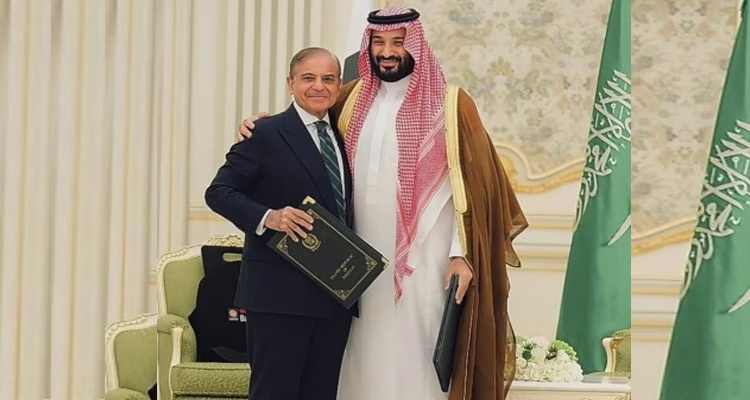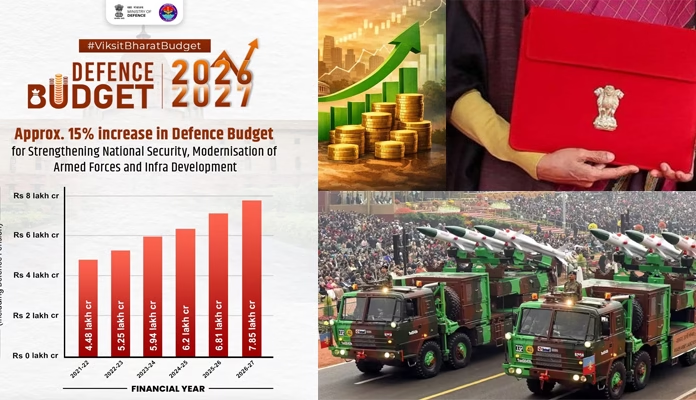Pakistan, Saudi Arabia Strategic Mutual Defence Agreement- “Any Attack on One Will Be Treated as an Attack on Both”
Riyadh/Islamabad: Pakistan and Saudi Arabia have sealed a historic Strategic Mutual Defence Agreement (SMDA) anchored on a bold pledge: “Any attack on one will be treated as an attack on both.”
Signed during Prime Minister Shehbaz Sharif’s visit to Riyadh at the invitation of Crown Prince Mohammed bin Salman, the agreement cements decades of military partnership into a formal joint-security shield. Officials say the pact expands cooperation across defence, intelligence and strategic domains, while projecting a united front amid fast-changing regional dynamics.
Motto at the Core of the Pact
The striking motto — equating an assault on one nation with an assault on the other — lies at the heart of the SMDA. It signals an unequivocal mutual guarantee, elevating the Pakistan–Saudi relationship into a collective defence framework comparable to some of the world’s strongest military alliances.
“This is a message of deterrence,” one diplomat said. “Riyadh and Islamabad are making clear that their security is indivisible.”
Signed Amid Regional Volatility
The timing underscores its importance.
-
South Asia is on edge following the Pahalgam terror attack in April and India’s Operation Sindoor in May.
-
In the Gulf, Israel’s September 9 strike on Doha has sharpened concerns over U.S. reliability as a security guarantor.
-
The Arab League and OIC, just days before the pact, jointly condemned the Israeli strike, signalling rare pan-Arab consensus.
India reacted sharply on Thursday, stressing it would “take all necessary steps” to safeguard its national interests and comprehensive security.
A Partnership Rooted in History
The pact is the latest chapter in a defence relationship stretching back nearly 60 years:
-
1967: First formal security cooperation agreement.
-
1969: Pakistani pilots flew Saudi jets in the Al-Wadiah conflict.
-
1979: Pakistani commandos helped retake the Grand Mosque in Mecca.
-
1980s: Over 15,000 Pakistani troops stationed in the Kingdom to protect Mecca and Medina.
-
1991 Gulf War: Pakistan sent reinforcements to shield Saudi Arabia from Iraqi threats.
Beyond deployments, the partnership has featured joint military exercises, training exchanges and intelligence sharing, making Islamabad Riyadh’s most dependable security partner.
Nuclear Ambiguity & Strategic Weight
Though both countries deny any formal nuclear arrangement, speculation about Saudi financial support for Pakistan’s nuclear programme has persisted since the 1970s. That ambiguity continues to give the partnership a unique deterrent value.
Regional Ripples
Analysts say the pact could alter strategic balances across the Gulf and South Asia. For Saudi Arabia, it reduces dependence on Washington; for Pakistan, it raises its profile as the military backbone of the Islamic world.
Whether the motto — “any attack on one will be treated as an attack on both” — translates into real joint deployments or remains a deterrent posture will be closely watched by rivals in India, Iran and Israel.
By placing a mutual-defence motto at its core, the Riyadh–Islamabad pact transforms a long-standing friendship into a formal military guarantee — binding the security of two nations more tightly than ever before.





